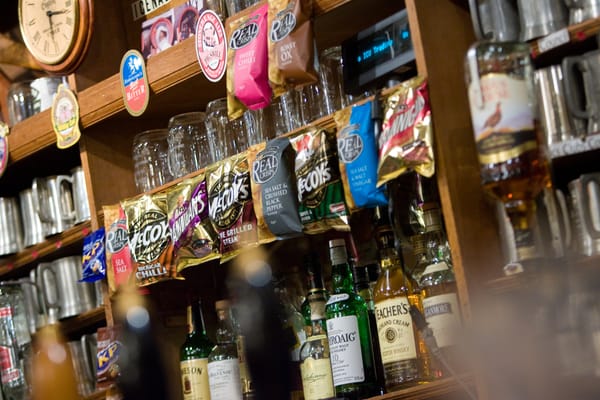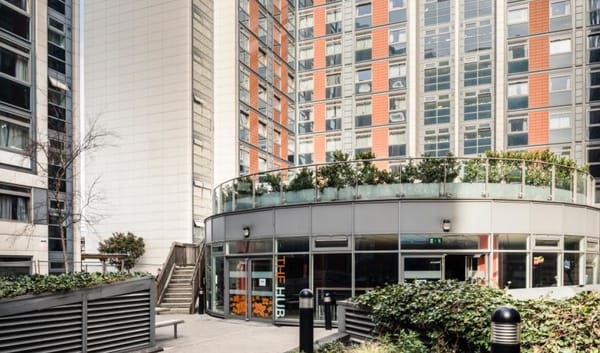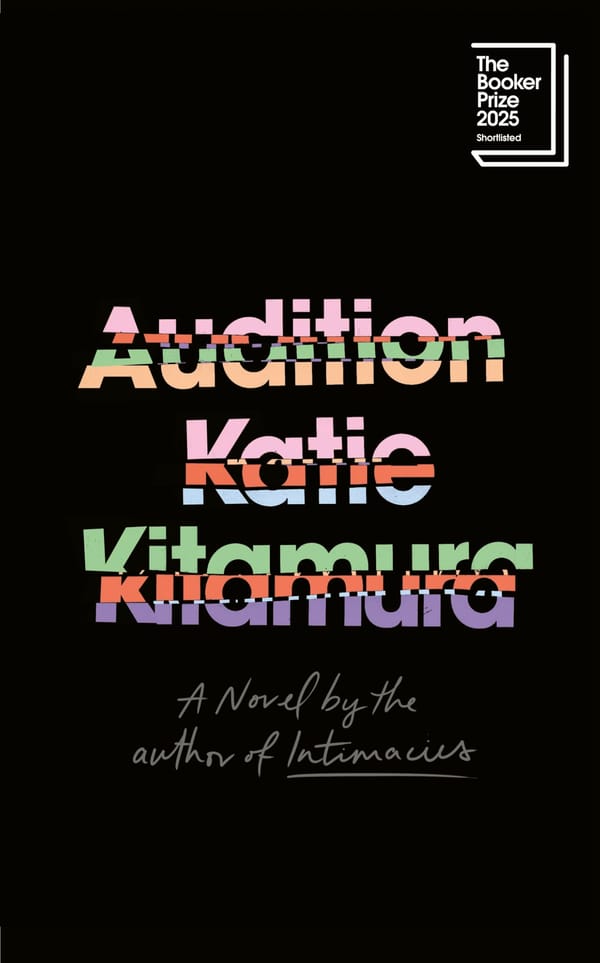UK students protest lockdown; call for rent reductions
Students around the UK are protesting against restrictions imposed by their universities
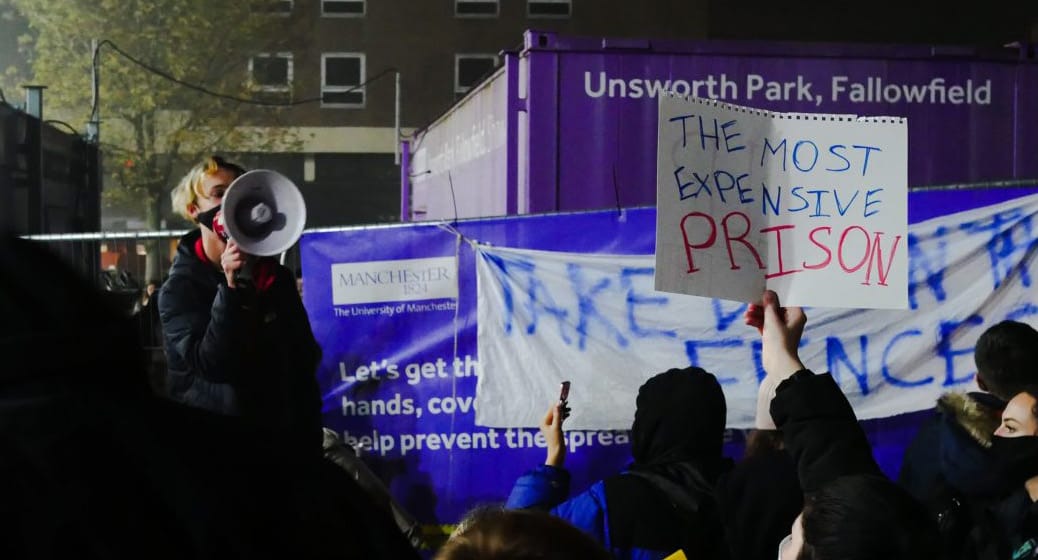
A rent strike in Bristol University, which began on October 24th, has amassed around 1200 participants to become the largest student rent strike in British history. Organised by ‘Bristol, Cut the Rent’, the campaign protests the university’s handling of students under lockdown in accommodation halls. Currently, over £1 million in rent money is being withheld from the university.
As of November 5th, around 1500 students and staff at Bristol have tested positive for COVID-19 so far. As a result, many students living in halls have been forced to self-isolate and their reported living conditions have been poor.
Food packages for students were often delivered late and insufficient for the number of people living in the flat – with stories of only two boxes of food allocated to last an eight-person flat for two weeks. Dietary requirements such as vegetarian, gluten-free, and nut-allergies were also overlooked. Students report being confined to their flats for days on end without any opportunity for exercise, and in some cases with no access to natural light. There are also accounts about intimidation of students by the security services that have been present in halls to enforce self-isolation. In addition, there are reported instances of power cuts in flats, and accumulation of waste because cleaning services has not collected accumulated rubbish.
The key demands of the campaign are for no-penalty contract releases and deposit refunds for students who no longer want to stay in halls, and a 30% rent reduction for student choosing to remain - which reflects the lack of cleaning services and blocked access to communal facilities. Crucially, they also demand that no student participating in the strike should suffer from any disciplinary or legal repercussion.
Students were initially promised by the university that they would receive mixed-mode teaching, with both in-person and remote methods to deliver course material, and thus would need to be on campus. Since then, increasingly students have been under lockdown and unable to attend any in-person sessions, and the University reportedly has been slowly eliminating in-person learning. However, accommodation contracts bound students to pay the full year’s rent even if they no longer have in-person sessions.
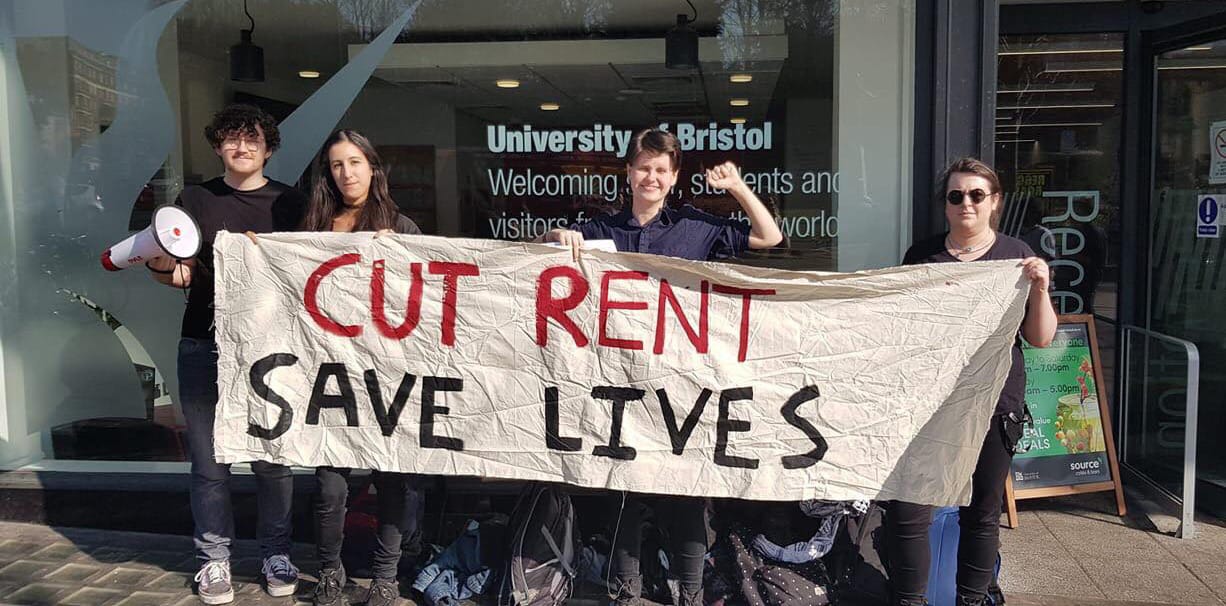


Organisers of the strike say this means that students are “paying for rooms they no longer need”, and that Bristol University overpromised because they “wanted students to come back so they could have our accommodation fees”. The Bristol Students’ Union has fully supported the strike efforts. The main message of the campaign is that the University “has a duty of care to its students” that isn’t currently being met.
Prior to the strike, the campaign with support from Bristol Students’ Union brought the issue to the University and did not receive satisfactory response, prompting the strike. The rent strike campaign officially launched on October 14th, with things moving swiftly and over 1000 students pledging to strike in the following ten days. Other demands of the campaign address the shoddy self-isolation conditions that students are placed under. The University has been asked to commit to delivering food packages on time, that food packages cater for all dietary requirements, to provide basic cleaning and menstrual products, allow outdoor access for students living in flats with no positive cases, and regular mental health check-ins from the University’s Residential Life Services. Transparency on the role and actions of security staff have also been asked for.
The campaign organisers and student union have also been in contact with staff unions that represent the cleaning and maintenance staff in halls, and has included in their demands that the University do not dismiss any staff members as a result of the lost rent revenue.
Rent striking is not an action protected by law, however the campaign believes that the University will not take disciplinary action or evict its own students during a pandemic because of their concern for reputation and fear of public backlash.
Bristol University owns most of the housing that students on strike reside in, although there are also some students under private housing providers, and the campaign has sought eviction resistance support from the community organisation ACORN for these students. Bristol University says that students are being provided with laundry services, welfare support, and hygiene products. The University also claims that food is being delivered that caters to dietary requirements, in contrast to student reports. The University assured that students taking part in the strike will not be sanctioned academically, bursaries and scholarships will not be affected, and international students should not worry about any visa issues.
Rent strikes in other universities around the country have also been planned. Students at the University of Manchester have also been organizing rent strikes since early October, with £300,000 being withheld as of October 13th. Their demands include no-penalty contract releases and a 40% rent reduction for students remaining in halls.
Strikes in UoM have been prompted by a range of similarly poor conditions for students self-isolating. In late September, over 100 students in Weston Hall of UoM were forced to sleep on the floor in communal spaces after their flats were flooded, challenging social distancing efforts. On October 8th, a 19 year old student was found dead in the UoM Fallowfield residence halls, having committed suicide due to deteriorating mental health and severe anxiety from lockdown.
More recently, on the morning of Thursday November 5th, students living in UoM Fallowfield campus woke up to find themselves fenced in by a chain of metal gates surrounding them completely. The University had put up metal fences in an effort to restrict entry and exit to the building to a single, security-guarded point, and no prior notification had been given to students. The fences were torn down by students the same day during a protest held in the evening. The University already apologised “for the concern and distress caused” and had planned to remove the fences the following morning, but students had already taken them down.
Currently, 137 students have tested positive for Covid-19 in the last two weeks, however, these are not necessarily all students in halls and there has yet been no hall-wide lockdown. However, students in halls that have been found breaking social distancing rules have been fined £50 each, which is paid to the hall and as has been seen in previous weeks, what occurs in northern, badly affected areas of Britain is often repeated in the south a week or two later.
If you are experiencing any mental health difficulties or are affected by the content of this article, you can seek free and urgent services such as: Samaritans is a 24/7 hotline that is open for, call 116 123 freely without any mobile credit, or email jo@samaritans. org. HOPElineUK is a confidential support and advice service for young people under the age of 35 who may be having thoughts of suicide or for anyone concerned a young person may be having thoughts of suicide, call 0800 068 4141 or text 07860039967 or email pat@papyrus-uk.org.
If you or someone you know is in immediate danger please call 999.
If you have information about COVID-19 at Imperial student halls, please get in contact at felix@imperial. ac.uk or through our Facebook page. We accept anonymity requests.
You can get tested for COVID-19 at Imperial College’s asymptomatic testing centre with more information at https://www.imperial.ac.uk/about/covid-19/testing-scheme/.

